For many people, skiing represents a moment of psychophysical well-being and socialising; it helps all athletes, competitive and amateur, to get in deep contact with their emotions and learn to manage them naturally. Moreover, it accustoms one to setting oneself fundamental goals, in order to achieve important goals and train one’s mind to relax in order to improve one’s performance.
Skiing increases awareness of oneself and one’s body, proprioception, coordination, knowing how to move with equipment on, engaging the whole body, not just legs and feet. Learning a new technique, tackling the descents, gives confidence and makes one proud of its own achievements. Moreover, it is a way to get to know the mountains and new places that can only be reached on skis. Measuring oneself on the slopes by mastering the technique better and better, instils confidence in one’s own means and makes one capable of tackling obstacles step by step, gradually increasing the degree of difficulty. Psychologically, the different perspective from which one looks at things, embracing mountains and valleys with one’s gaze, orients one’s mental outlook, broadens one’s views, and accustoms one to diversity and complexity. The new sensory experiences, the white colour of the snow, the woods, the wind, the winter sun, silence, the different sound of one’s own voice, the echo, the typical sound of skis on the snow; these are experiences that, starting with the five senses, stratify and take root naturally in the unconscious. All these factors expand the capacity to think. Being surrounded by beautiful landscapes, views of pristine peaks and tree-lined slopes teaches one to value and appreciate natural richness. In addition, mountains stimulate the imagination, improve observation skills, and expand physical pleasure and feelings of tranquillity.
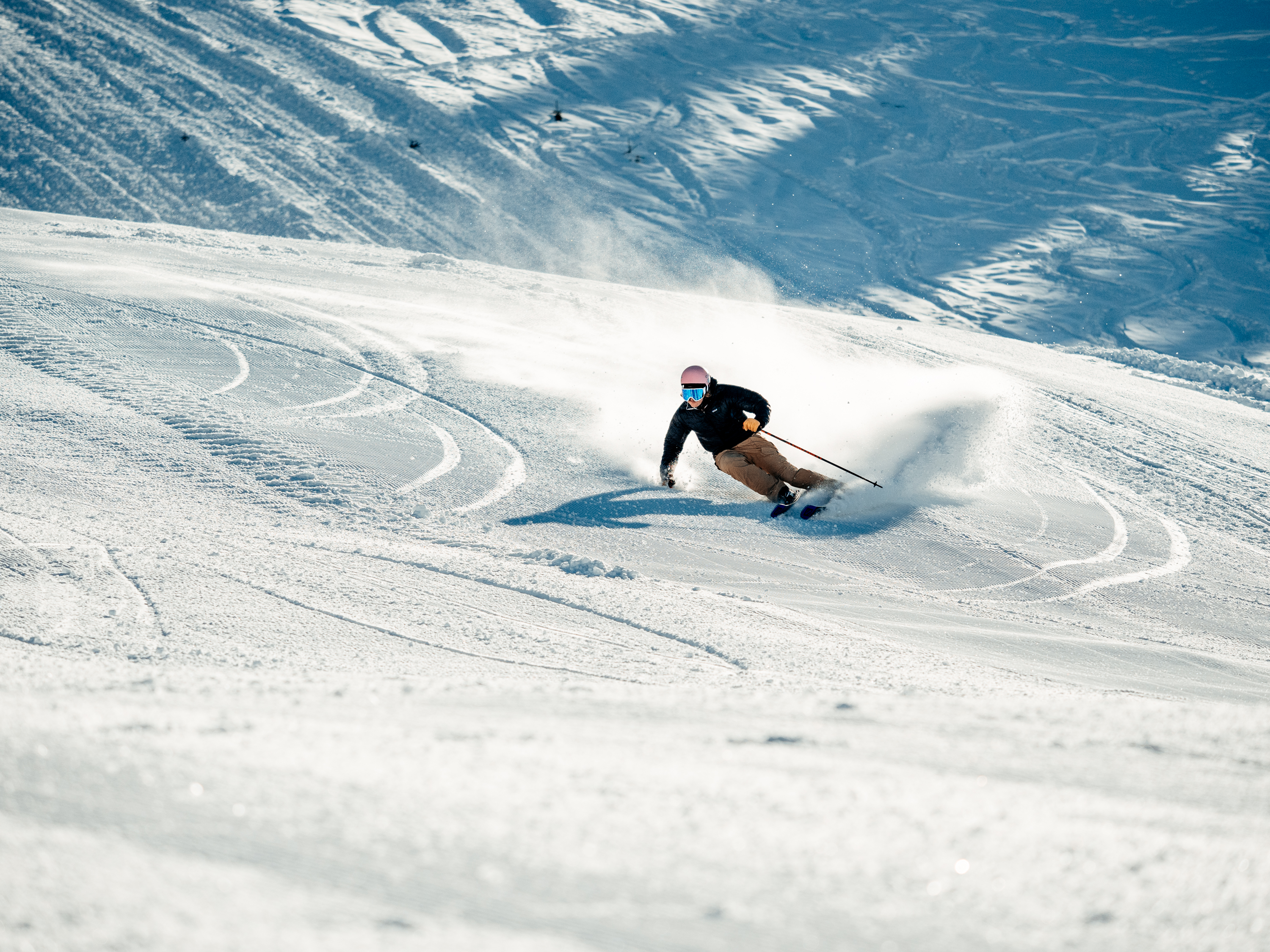
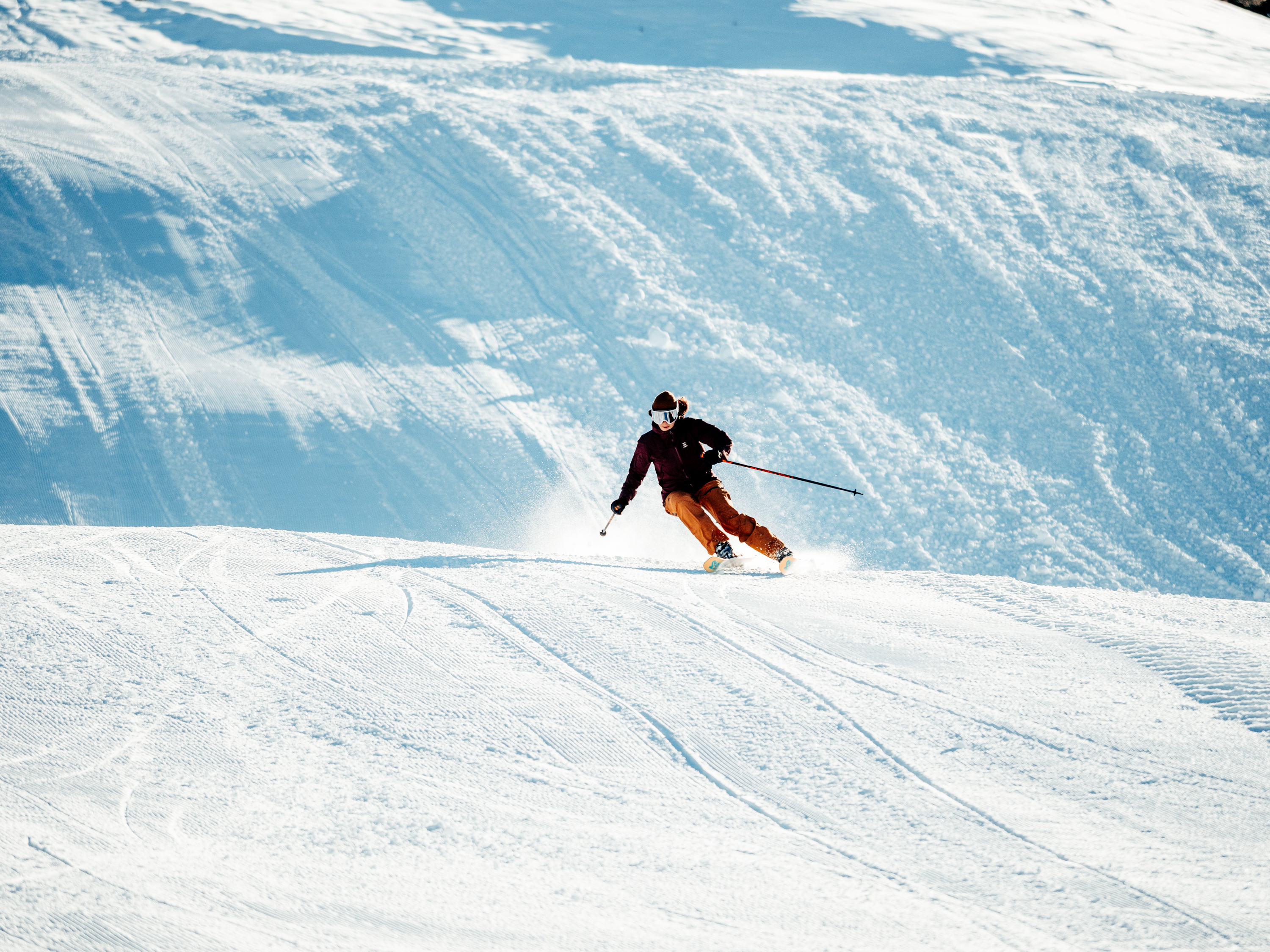
Skiing teaches how to observe people in their natural element; observation is the basis of all learning. Skiing enables us to learn to observe ourselves and make changes based on our own reflections. It also leads us to concentrate and look at where we are at that precise moment, and to do what is necessary in the hic et nunc, in order to reach the goal we have set for ourselves. At the end of the slopes, looking back towards the mountain makes one aware of the path, satisfied and proud of one’s efforts and of oneself. Skiing teaches us that sacrifice pays, always, it is usually linked to holiday periods, to a break from our everyday life, but it can be a way of thinking, and a good habit to incorporate into one’s habits. Skiing as a modus vivendi, not just as a sporting activity. By preparing to plough through the snow, one learns many things: the right equipment for each discipline (alpine skiing, cross-country skiing, snowboarding, telemark, ski mountaineering, etc.); the value of earning every metre between turns, descents and ascents; personal safety and the safety of others, the necessary rules to respect (use of helmets, priorities, etc.); respect for the technical level of one’s partner or friends, without forcing oneself if they are more capable, and without feeling inferior if one is a beginner. Everyone has their own mastery of the discipline, their own style, their own timing, and personal goals. Having mastered the technique, everyone ventures where they want, as far as they believe, where they can, without forcing themselves or having to prove anything to anyone. Skiing teaches solidarity, everyone skis alone, but at the same time, together with others. Safety is not an optional, the mountain has its rules, and they must be respected. The mountain calls for companionship and asks you to always be sober, to be vigilant while having fun, it calls for caution. There is no fun without safety.
Skiing is a lot of fun, and it is also great for children who are always looking for something new, curious about learning and discovering adventures, which in the mountains are always exciting. Children are eager to learn and naturally inclined towards activities other than their usual ones, as long as these are with their parents or adults they know, such as their teachers. If skiing is learnt at an early age, it combines the enjoyment of this activity with a love of the mountains, learning a discipline, playing and gaining experience by being in a group, and movement in an environment beneficial to health. Learning to ski from an early age is the best time, because young children quickly become passionate about snow and learn the automatisms of the sport intuitively. It is a kind of “imprinting”, which remains in the unconscious physical, psychic and sensory memory for a lifetime, associated with the memory and pleasure of those moments.
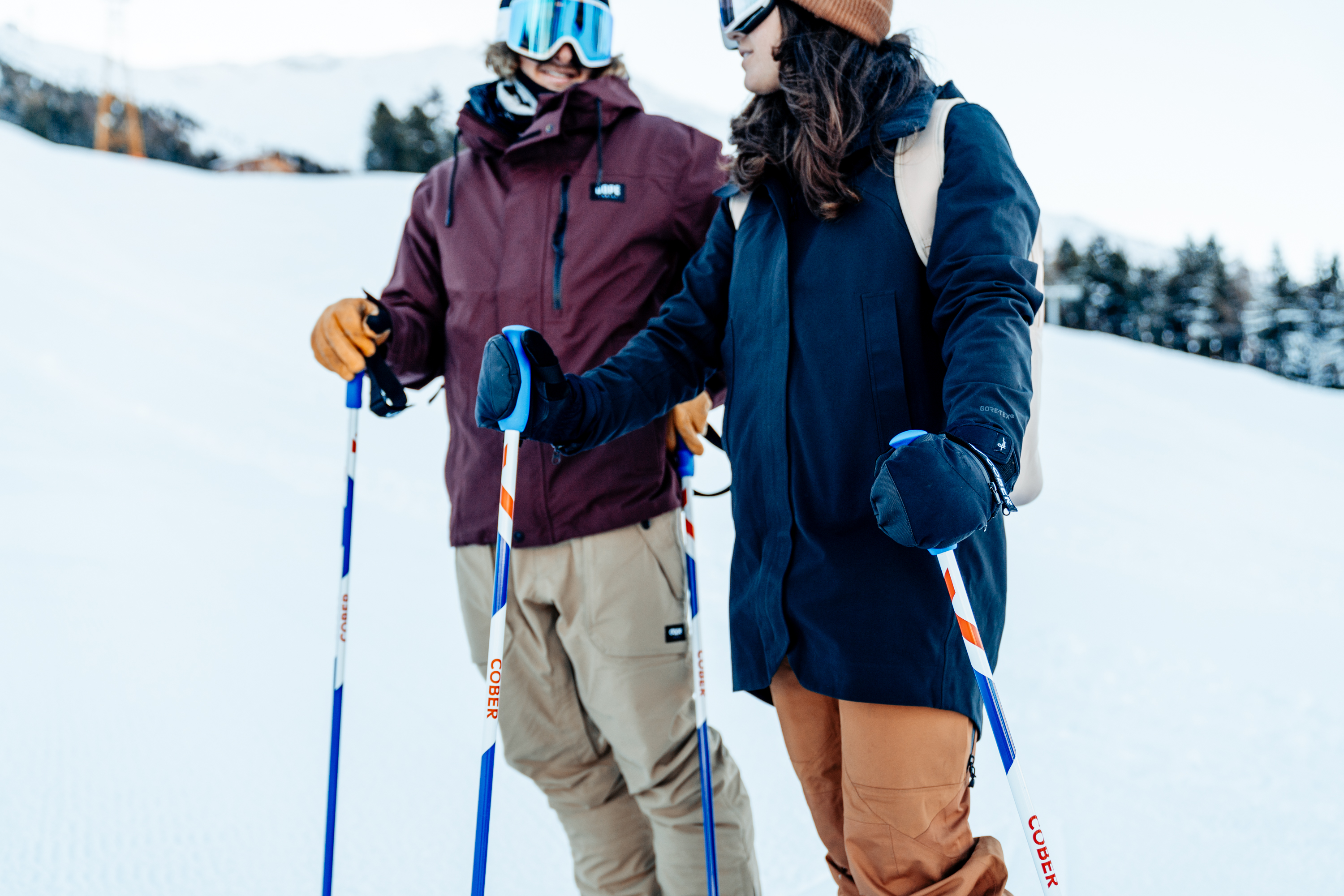
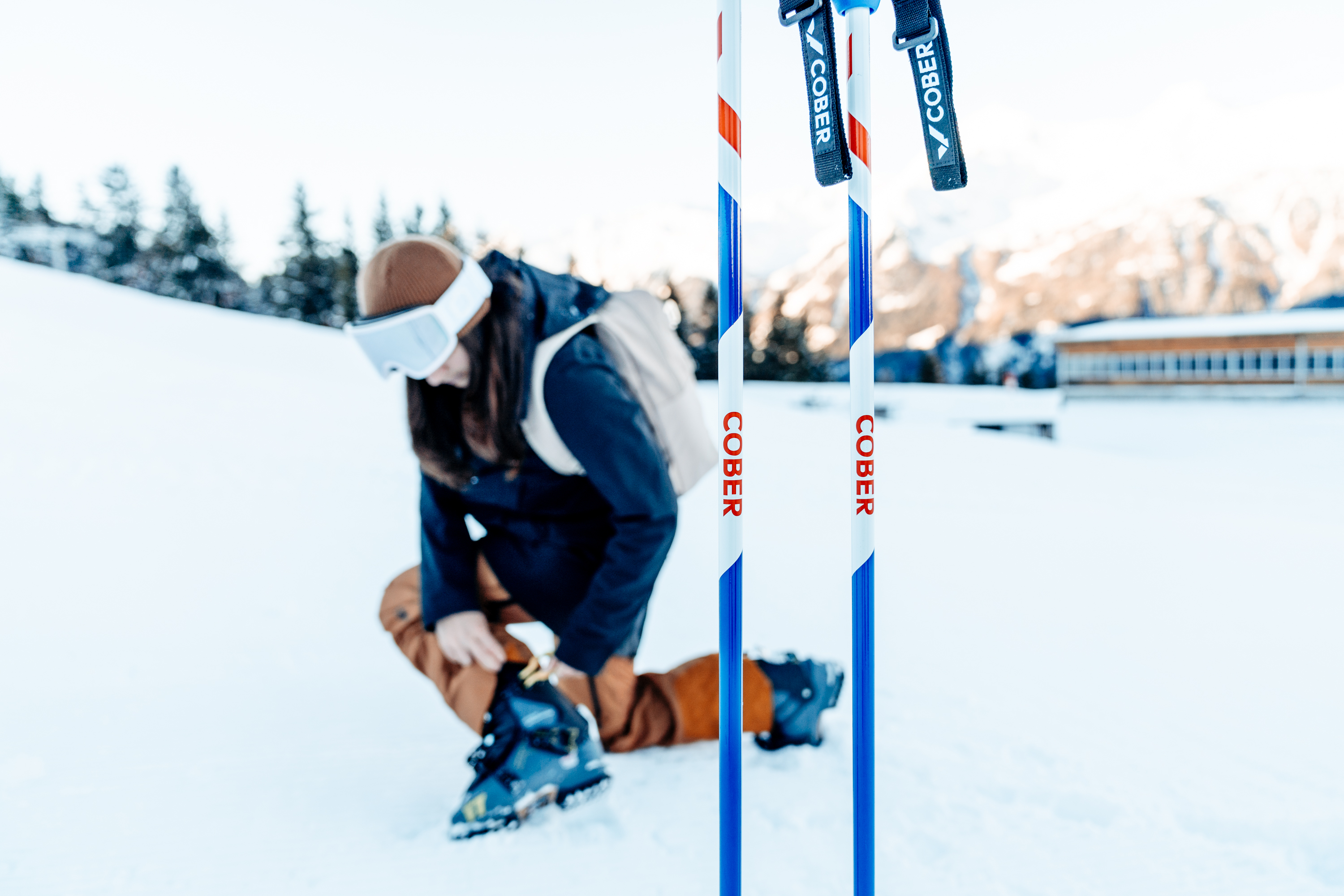
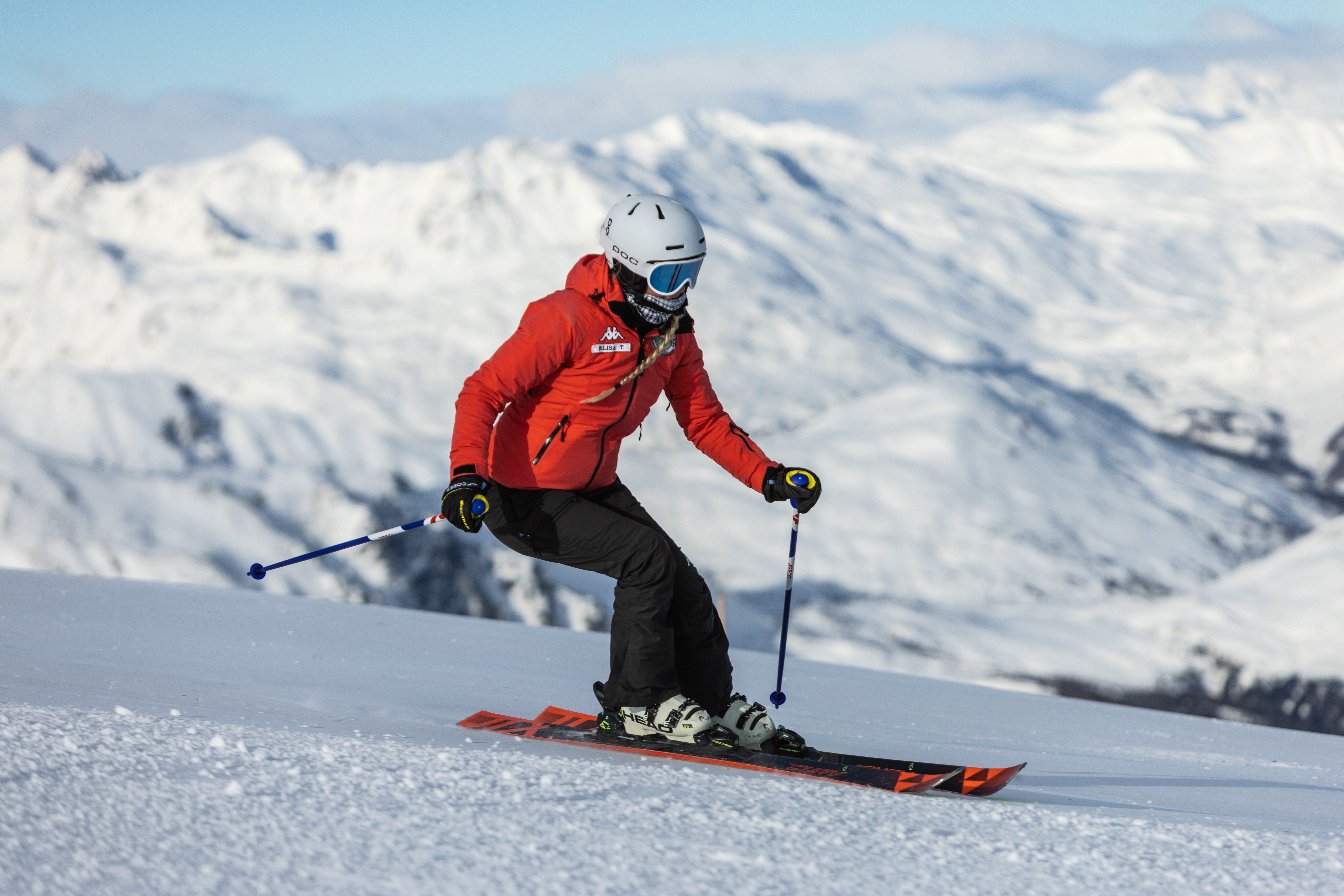
Skiing is an excellent sport for keeping children in good physical shape, improving the health of the musculoskeletal, respiratory, and cardiovascular systems. It improves elasticity, strength, general wellbeing and instils a feeling of pleasure through the release of endorphins. Of crucial importance for psychological well-being is the silence typical of life in the mountains. An adequate period of detoxification from noise pollution, in which many are immersed in the city, is certainly essential. Moreover, it is a privileged environment in which one cannot use electronic devices, or if one does, only for a short time; therefore, it favours a rather painless separation from all devices through physical activity.
Source: Ansa.it
